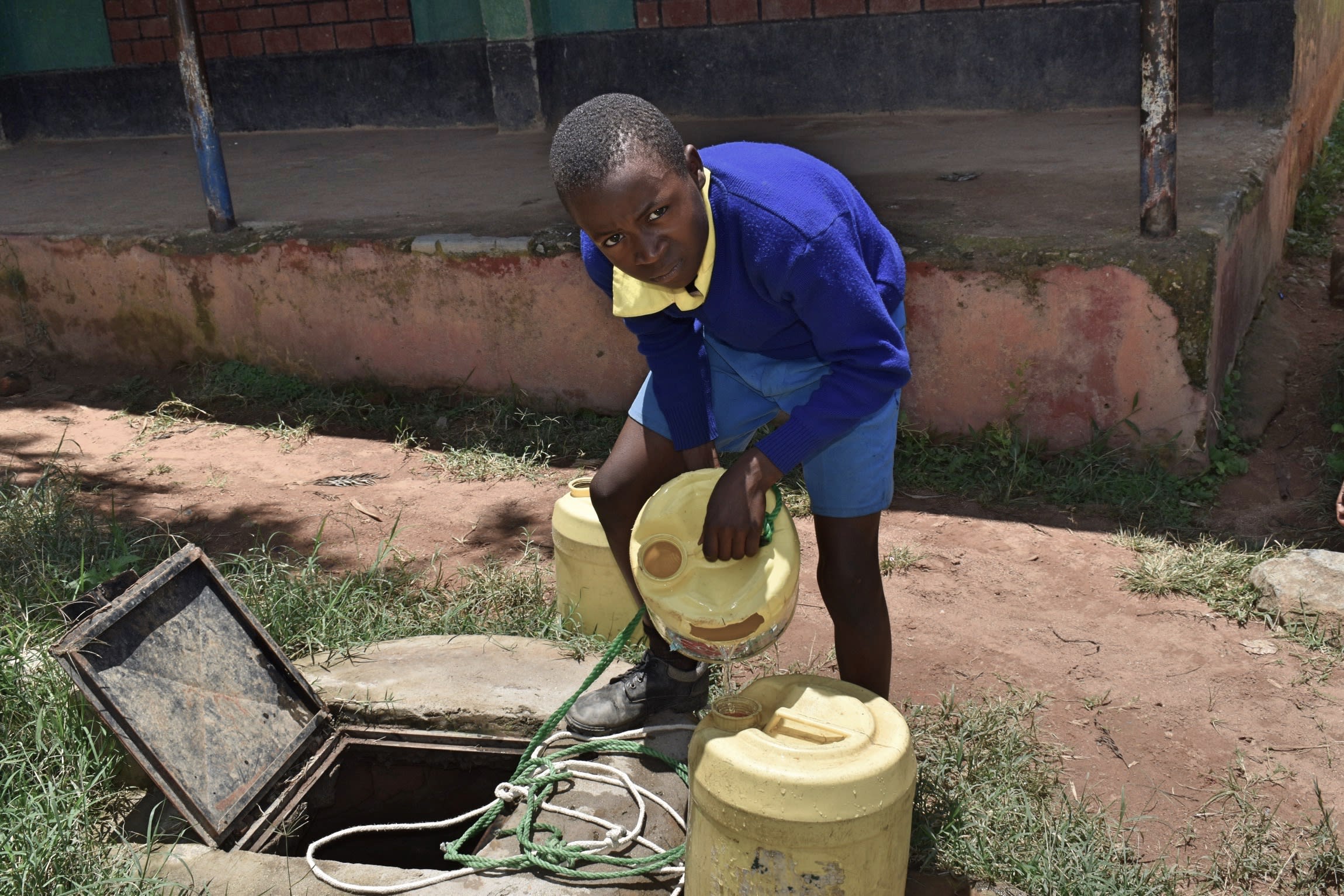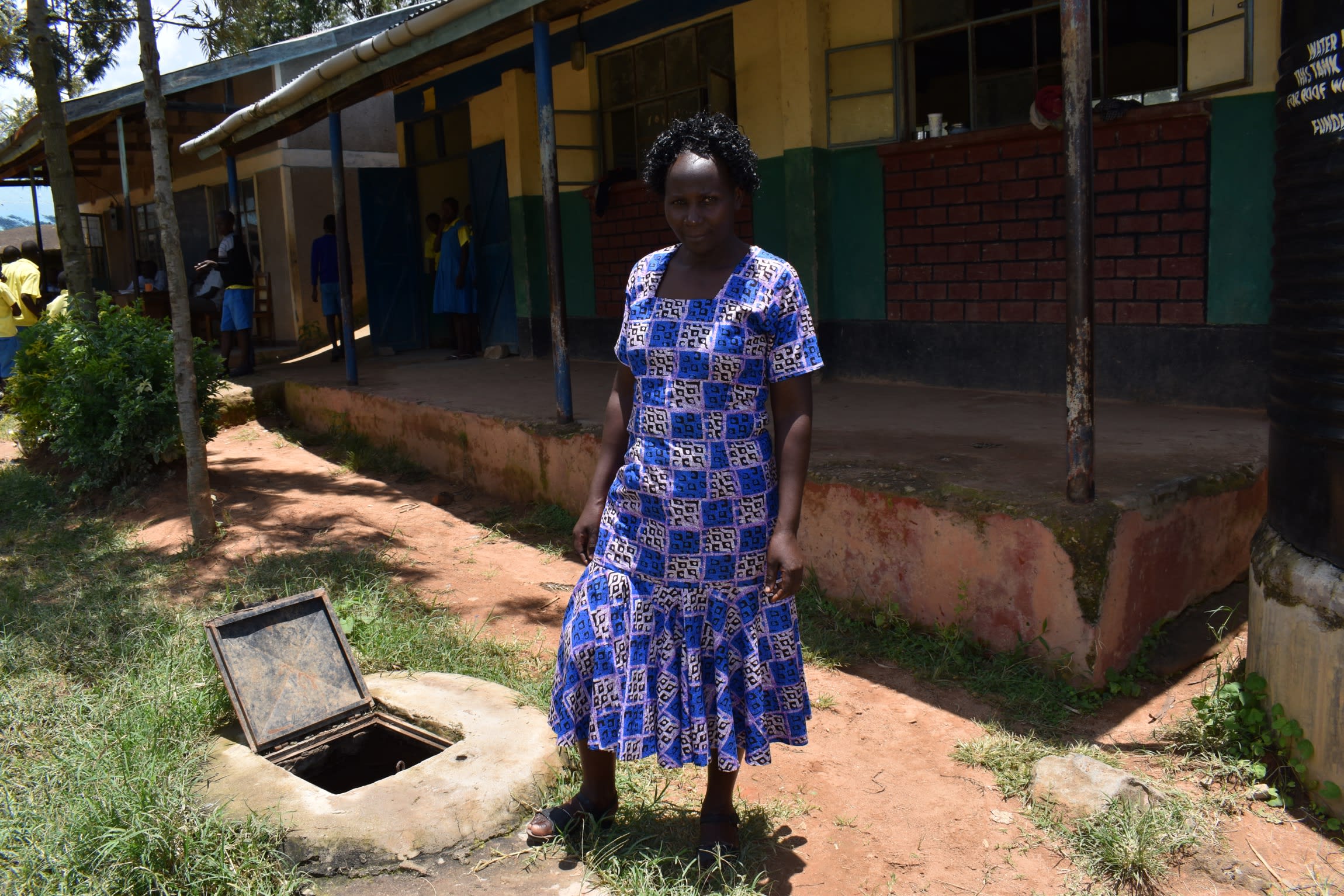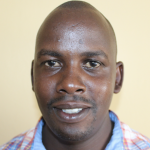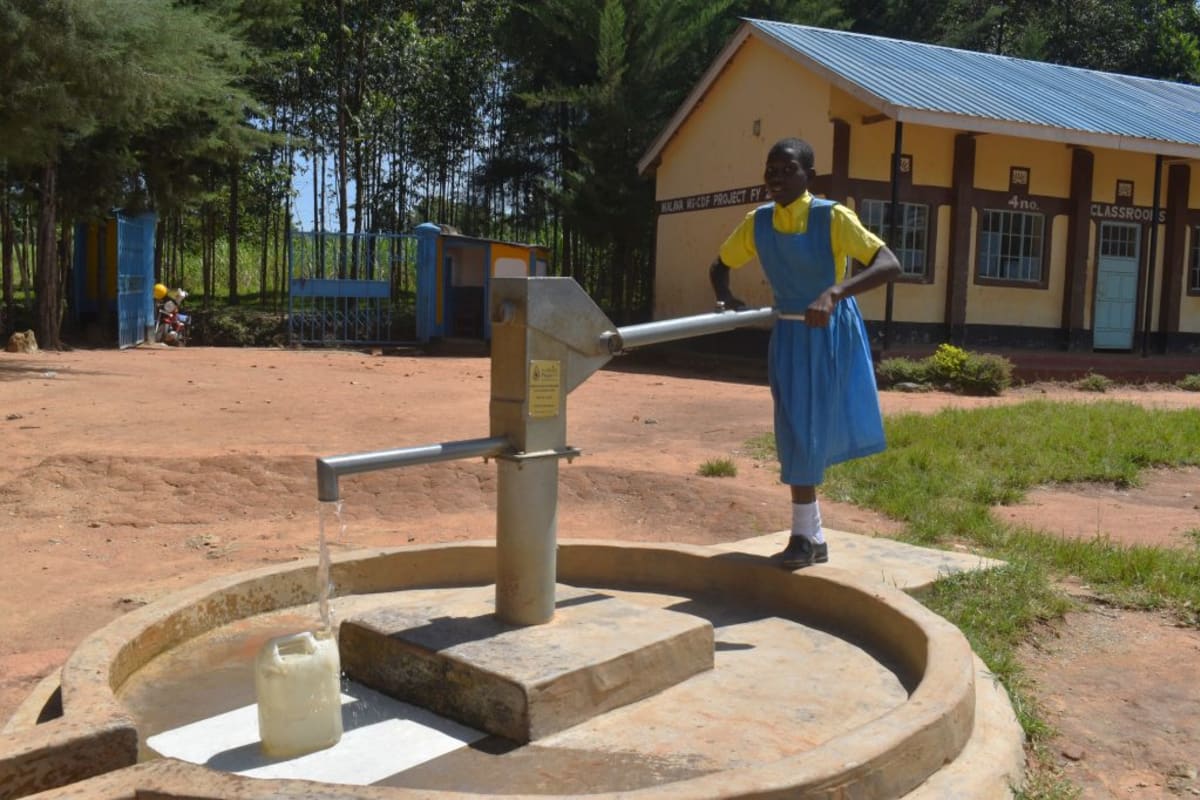Despite their three water sources on school grounds, the 663 students and staff at Matioli K Salvation Army Primary School never have enough water.
First, the school installed a hand-dug shallow well in 1989 when the school was built. But the well dries out more and more with each passing dry season. So then they got one small rain tank. And another. And yet, children are still sent out to collect water from a nearby stream every day. The well and tanks all run dry.
"We have been learning in dirty classrooms, said 12-year-old Felix M., seen below fetching water from the shallow well.

"We continue with our lessons when there is no water at the tank. It leaves classrooms dusty, hence [they are not] conducive for learning to take place."
As Felix observed, water scarcity means that the school must forego daily cleaning, and our field officers noted that the hygiene and sanitation situation at the school is "very poor."
Though the school has handwashing stations, they are often filled with unsafe water and used without soap. The jerrycan and rope used to bring water up from the bottom of the school's well are taken inside every night, which means the rope acquires a fresh coat of dirt and dust that is then plunged into the students' water supply (when there is water). And there are just 11 latrines for the school's 643 students.
"[The] rope used for pulling water [goes] rotten [after] long use," Felix explained. "Likewise, the sanitation facilities will be full of [a] stinking smell because of lack of water to be used for cleaning them."
And unsanitary conditions are not the only consequence of the school's water crisis.

"Students waste a lot of their precious time going for water rather than concentrating on their academics," said senior teacher, Violet Kwoma (in the photo above at the shallow well).
Violet told us of one recent occasion where she introduced a topic during her class and was surprised to hear the bell ring signifying class time was over. Students had spent so much of the class period off-campus collecting water that she'd hardly gotten to teach, with the teacher scheduled to use the classroom next already waiting at the classroom door. She had to tell her students to stay after normal school hours to teach them anything.
"And failure to utilize time properly will definitely lead to poor academic performance," Violet said. "The time that you want to create for them for learning is interfered with."
What We Can Do:
New Well
We conducted a hydrogeological survey at this school and the results indicated the water table beneath it is an ideal candidate for a borehole well. Due to a borehole well's unique ability to tap into a safe, year-round water column, it will be poised to serve all of the water needs for this school's large population, even through the dry months.
The school will help collect the needed construction materials such as sand, rocks, and water for mixing cement. They will also provide housing and meals for the work team, in addition to providing local laborers. We will complement their materials by providing an expert team of artisans and drilling professionals, tools, hardware, and the hand-pump. Once finished, water from the well will then be used by the school’s students and staff for drinking, handwashing, cooking, cleaning, and much more.
Handwashing Stations
There is currently nowhere for students to wash their hands after using the latrines or before eating lunch, let alone the water to do so.
The student health club will oversee the two new handwashing stations we will provide, and make sure they are kept clean and in working condition. The club leaders will fill the handwashing stations with water daily and make sure they are always supplied with a cleaning agent such as soap or ash.
VIP Latrines
We will construct two triple-door latrine blocks using local materials that the school will help gather. Three doors will serve the girls and three doors will serve the boys. All of these new latrines will have cement floors that are designed to be easy to use and to clean. And with a borehole right on school property, there should be enough water to keep them clean.
Training on Health, Hygiene, COVID-19, and More
We will hold a one-day intensive training session with students, teachers, and parents. This training will cover a wide range of topics including COVID-19 symptoms, transmission routes, and prevention; personal and environmental hygiene; and the operation and maintenance of the borehole, latrines, and handwashing stations. There will be a special emphasis on handwashing.
Our team of facilitators will use a variety of methods to train, including participatory hygiene and sanitation transformation, and asset-based community development. We will initiate a student health club, which will prepare students to lead other pupils into healthy habits at school and at home. We will also lead lectures, group discussions, and provide illustrative handouts to teach health topics and ways to promote good hygiene practices within the school including handwashing and water treatment. We will then conduct a series of follow-up trainings before transitioning to our regularly scheduled support visits throughout the year.
We and the school strongly believe that all of these components will work together to improve standards at this school, which will help lead to better student academic performance and will help unlock the opportunity for these students to live better, healthier lives.

 Borehole Well and Hand Pump
Borehole Well and Hand Pump
 Rehabilitation Project
Rehabilitation Project








































